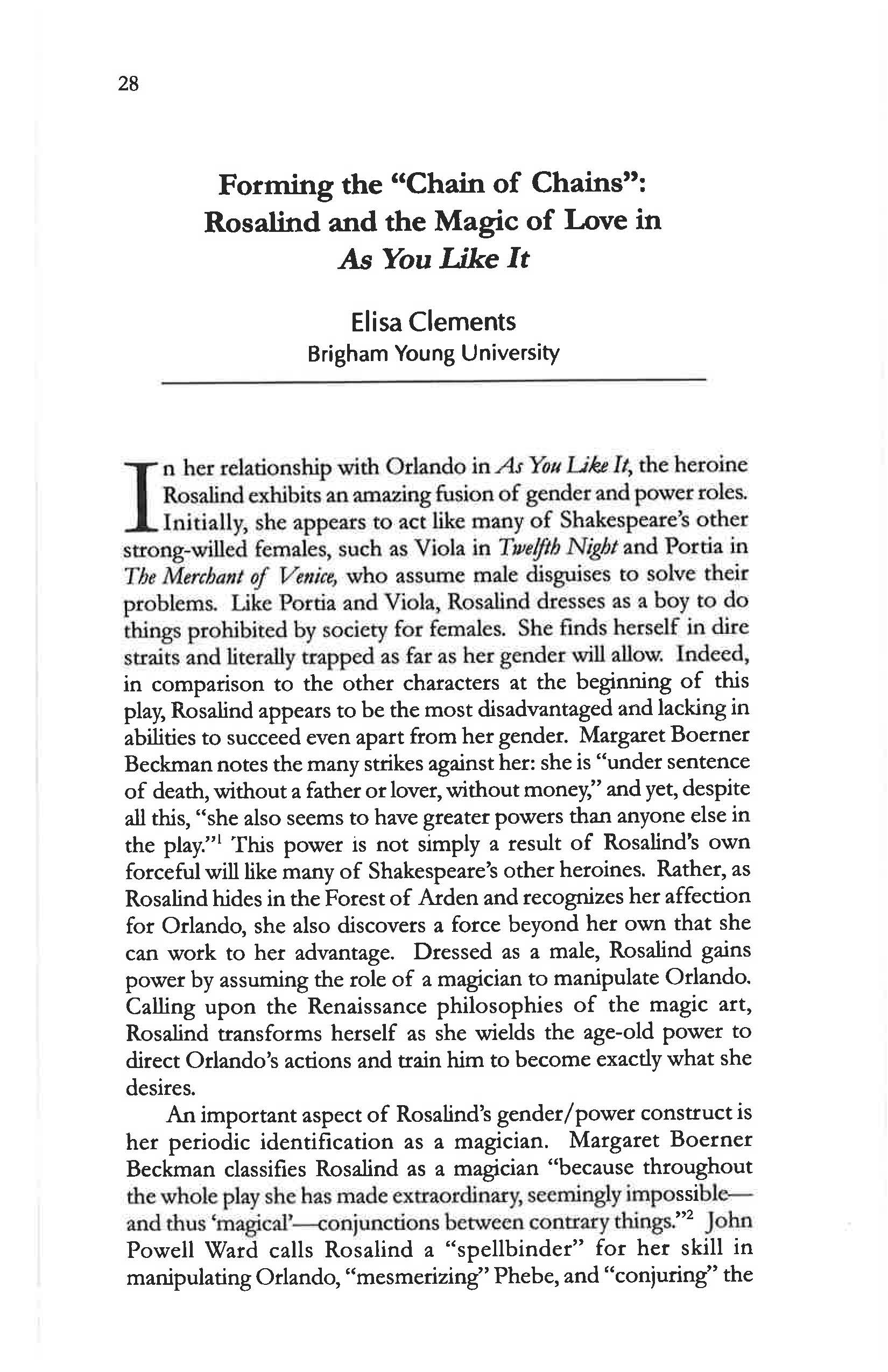Forming the "Chain of Chains": Rosalind and the Magic of Love in As You Like It
Main Article Content
Abstract
In her relationship with Orlando in As You Like It, the heroine Rosalind exhibits an amazing fusion of gender and power roles. Initially, she appears to act like many of Shakespeare's other strong-willed females, such as Viola in Twelfth Night and Portia in The Merchant of Venice, who assume male disguises to solve their problems. Like Portia and Viola, Rosalind dresses as a boy to do things prohibited by society for females. She finds herself in dire straits and literally trapped as far as her gender will allow. Indeed, in comparison to the other characters at the beginning of this play, Rosalind appeares to be the most disadvantaged and lacking in abilities to succeed even apart from her gender. Margaret Boerner Beckman notes the many strikes against her: she is "undersentence of death, without a father or lover, without money," and yet, despite all this, "she also seems to have greater powers than anyone else in the play."1 this power is not simply a result of Rosalind's own forceful will like many of Shakespeare's other heroines. Rather, as Rosalind hides in the Forest of Arden and recognizes her affection for Orlando, she also discovers a force beyond her own that she can work to her advantage. Dressed as a male, Rosalind gains power by assuming the role of a magician to manipulate Orlando. Calling upond the Renaissance philosophies of the magic art, Rosalind transforms herself as she wields the age-old power to direct Orlando's actions and train him to become exactly what she desires.
